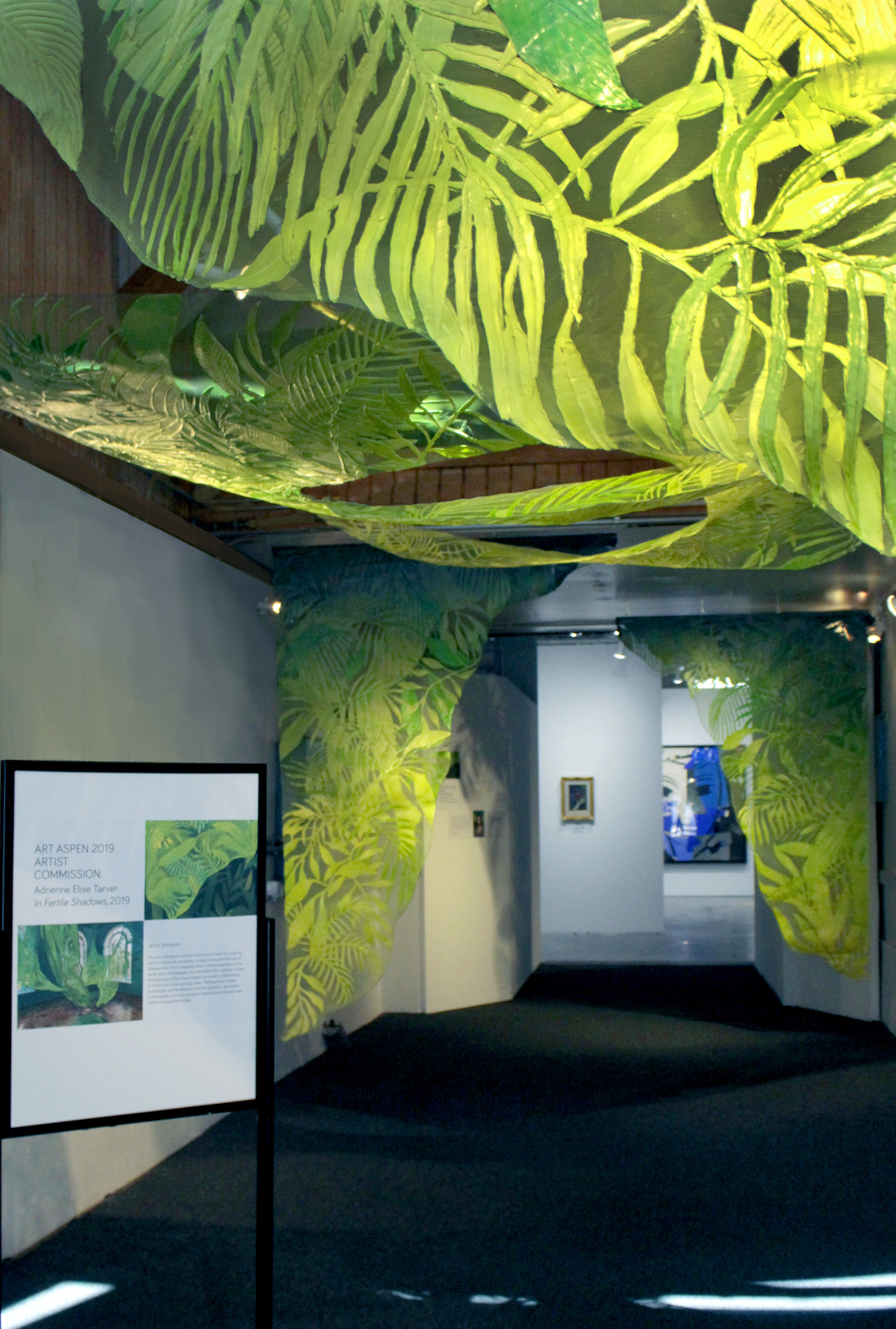
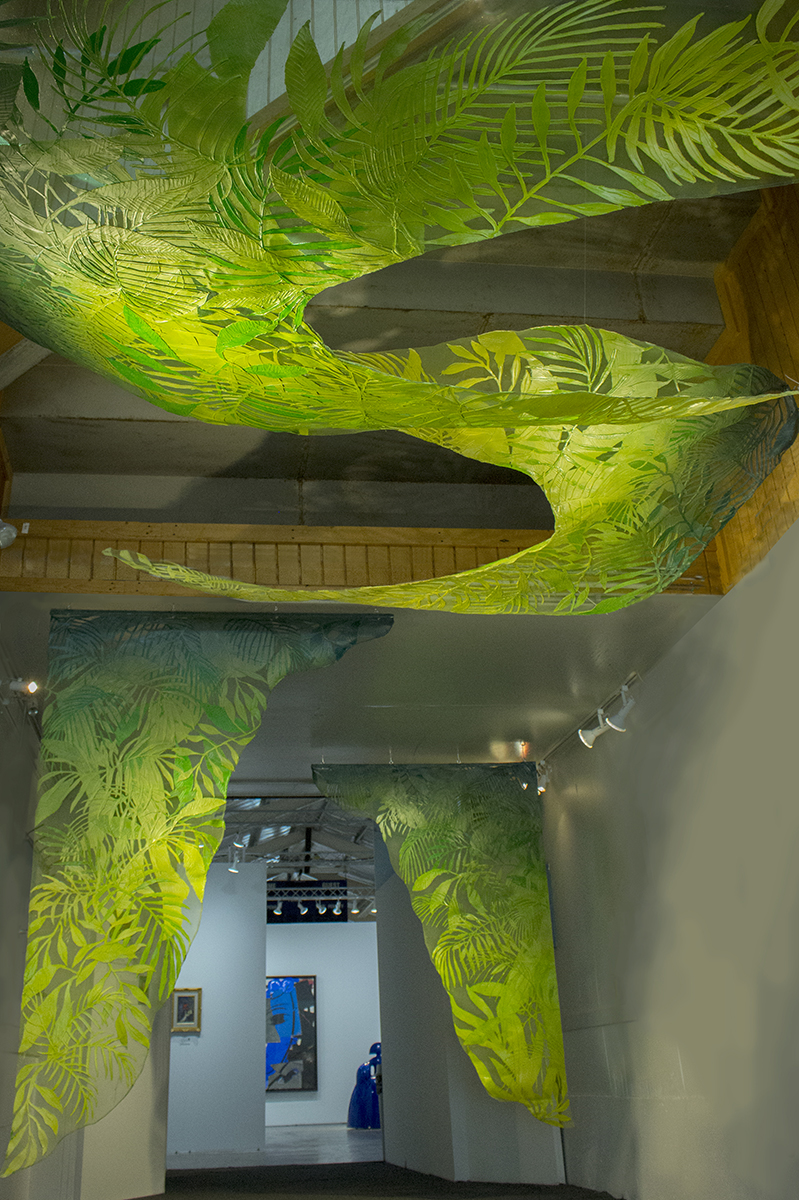
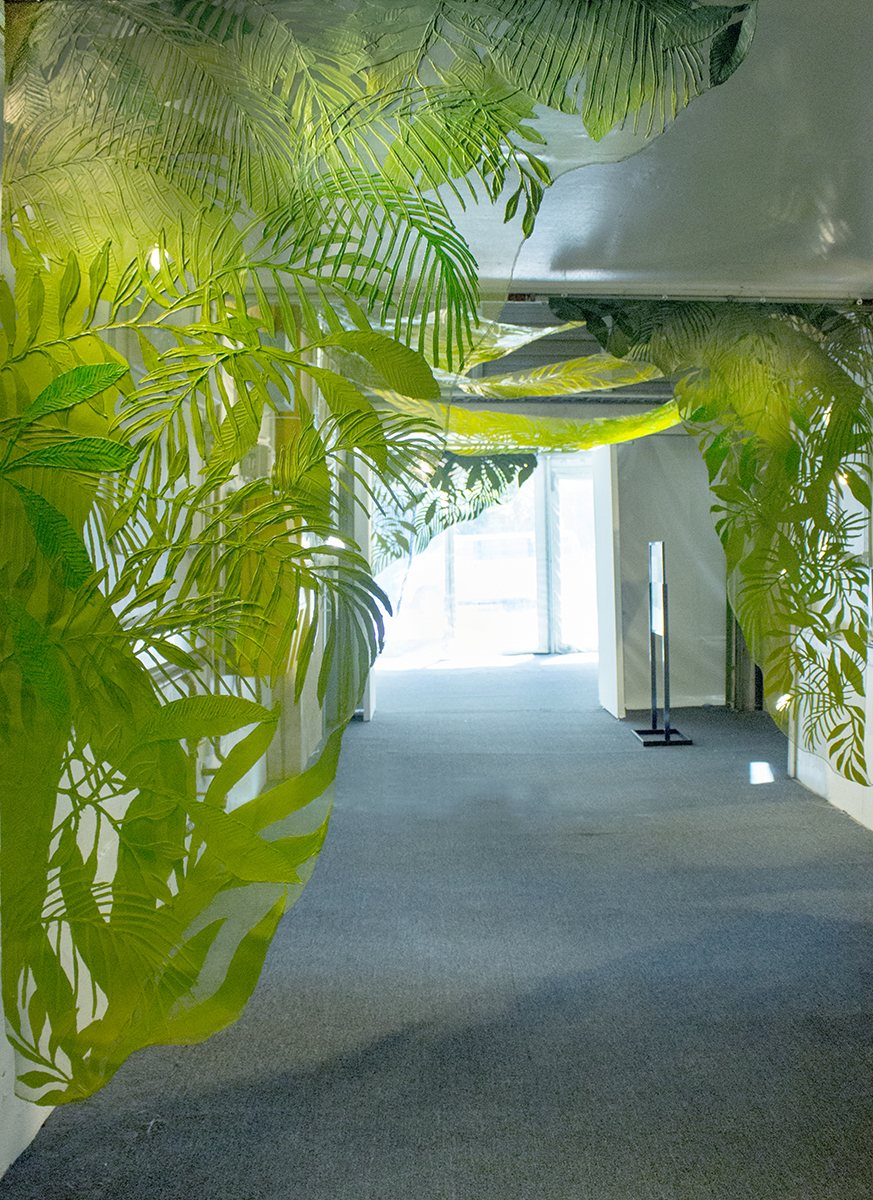
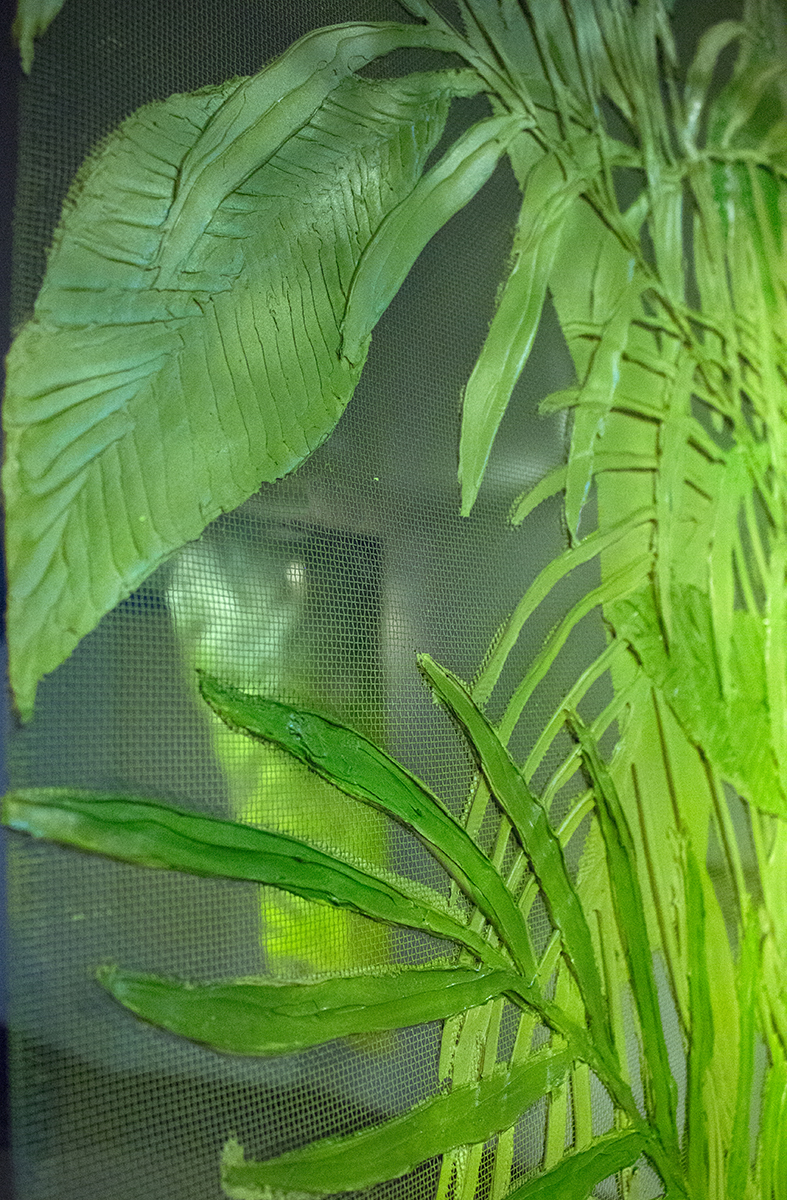
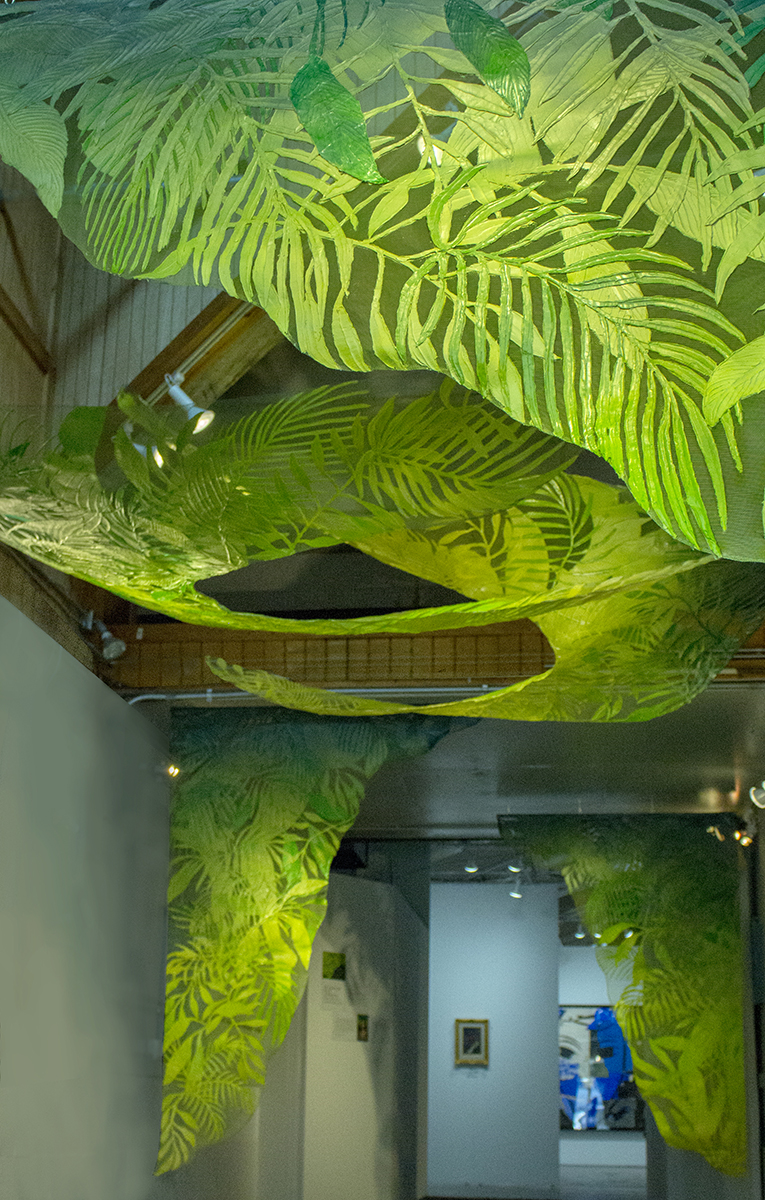
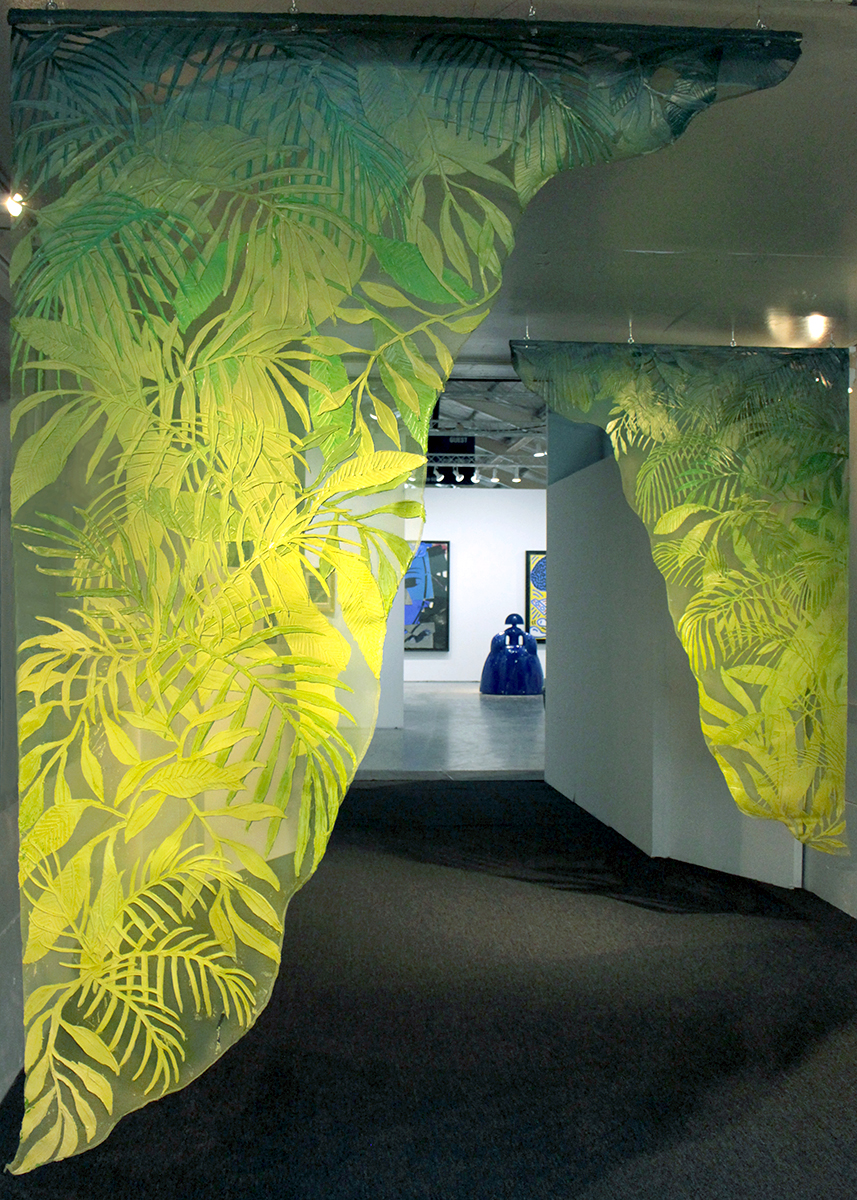

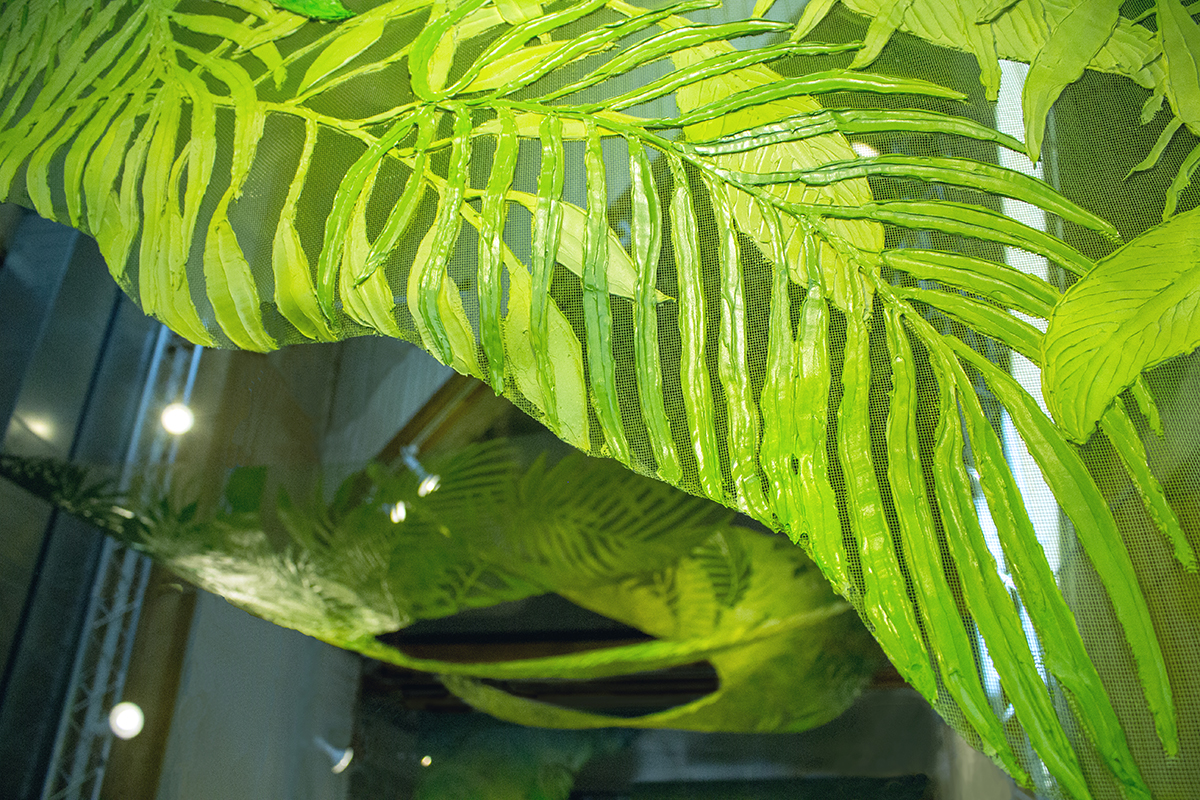
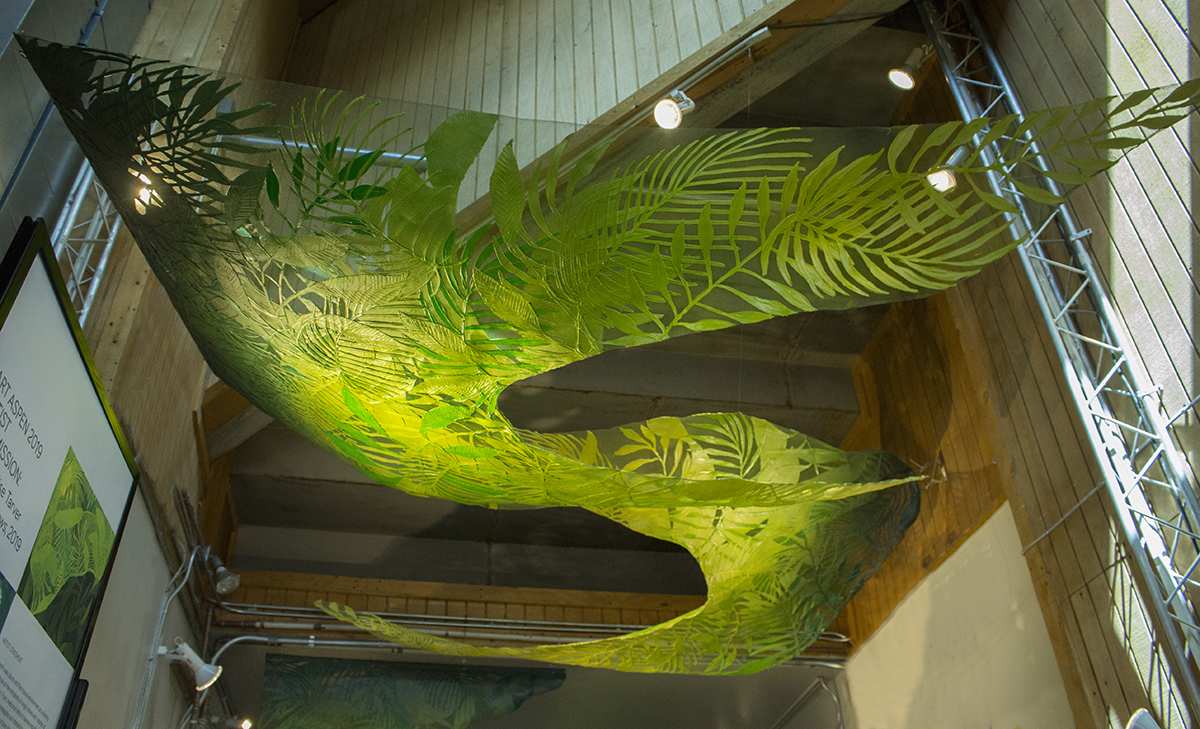
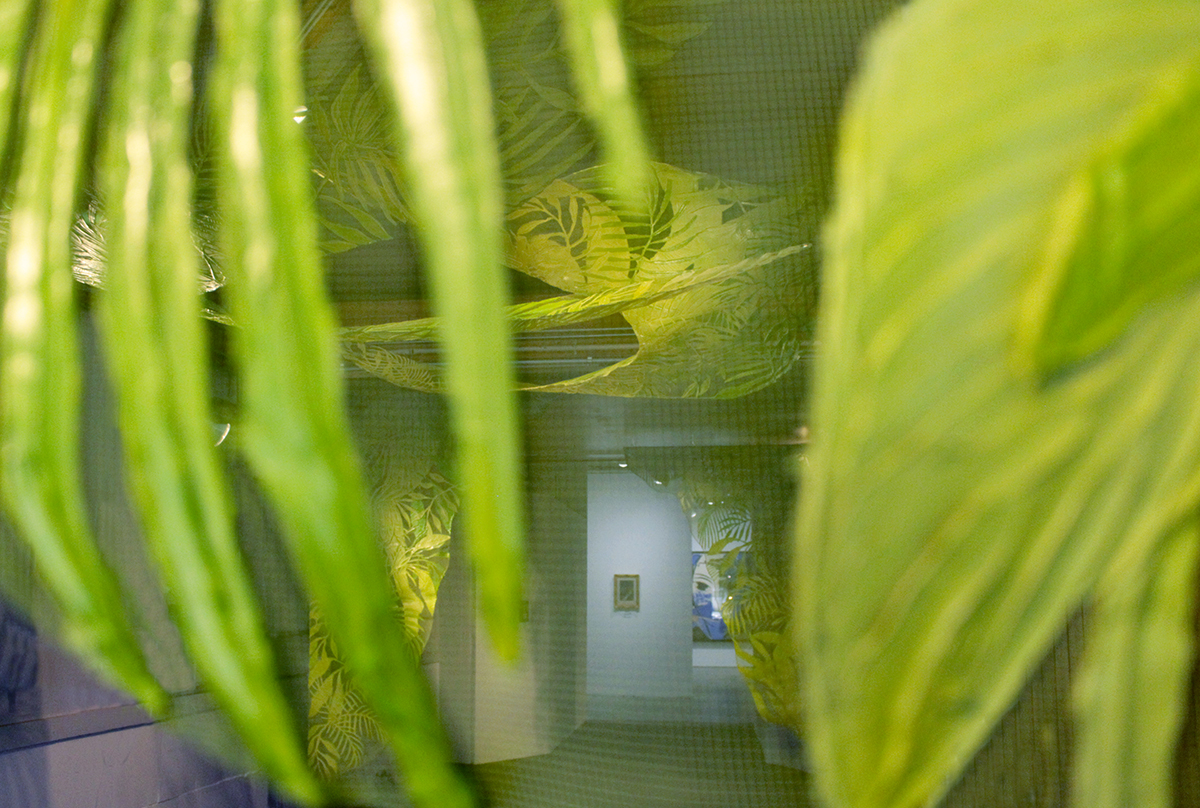
Excerpts from interview in Whitewall Magazine:
WHITEWALLER: Tell us a bit about your installation for Art Aspen, “In Fertile Shadows.”
ADRIENNE ELISE TARVER: In my work I’ve been researching plants and the tropical environment as a starting point to look at the complexity of origin stories and histories of displacement. Recently, I’ve been particularly interested in banana plants and the social upheaval, economies, and people that have depended on them. Cultivating them through bouts of disease has left plots of unusable soil in the tropics. At the same time the modern banana was propagated; J. Marion Sims was conducting painful surgical experiments on enslaved women’s reproductive organs. These events and this point in history led directly to the ubiquitous banana in our diets today and the modern gynecological experience. With “In Fertile Shadows” the title is a play on fertility/infertility and the histories whose shadows provide the foundation of where we are now.
“In Fertile Shadows” installed in the entry hallway of Art Aspen 2019
WW: This work addresses the complexity and invisibility of the black female identity, domesticity, and fantasy in the Western landscape. Tell us a bit about how this explored in the installation.
AET: Throughout the work, hidden amongst the foliage there are hidden female figures. I think a lot about invisibility as a circumstance and a strategy. In America and in most of the Western world, black and brown women have been asked to be invisible when that serves the purpose of the circumstance (domestic work) and demanded to be visible, but silent, when objectified as seen in the trope of the tropical seductress (Gauguin’s painted figures). The hidden figures in my work are protected, at least temporarily, from the audience gaze, gaining an upper hand and turning the viewer simultaneously into a voyeur and the viewed.

